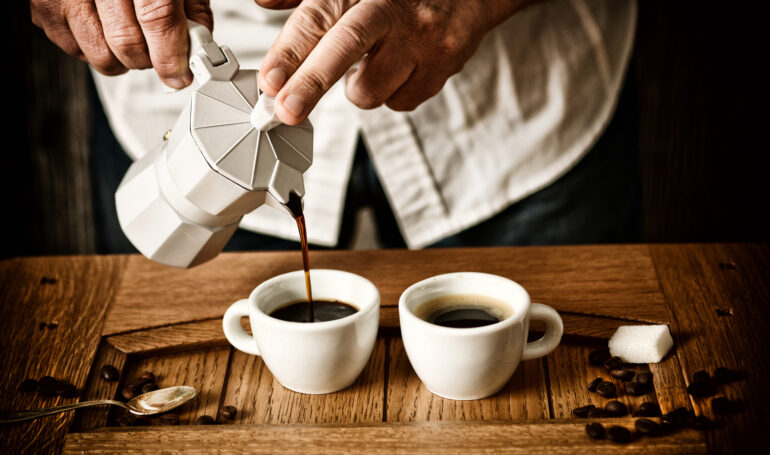
A Guide to Italy’s Espresso Culture
Italy isn’t just the birthplace of the Renaissance. It’s also the home of a beloved coffee culture. From the bustling bars of Rome, to the quaint cafés of Florence, coffee (espresso) in Italy is more than just a drink. It’s a ritual, an art form, and a way of life. In this guide, we’ll dive deep into the rich traditions, unique beverages, and unspoken rules that define Italian coffee culture. Whether you’re joining me for a trip to Italy, or simply looking to bring a bit of its coffee magic into your home, this guide is your perfect starting point.
The Foundation: Espresso
At the heart of the Italian coffee culture basically lies the espresso. This small, concentrated shot of coffee is chiefly the cornerstone of nearly every coffee drink in Italy. Served in a tiny porcelain cup, an espresso is meant to be enjoyed quickly—a sharp, invigorating jolt to kickstart the day or provide a midday boost during the afternoon.
In Italy, the espresso experience is fast-paced. Most Italians drink their espresso while standing at the bar, exchanging a quick word with the barista before heading off to their next destination. The unspoken rule? Don’t linger. Italian coffee bars are efficient, social hubs where people come for the coffee and the company, not to camp out with a laptop for hours.
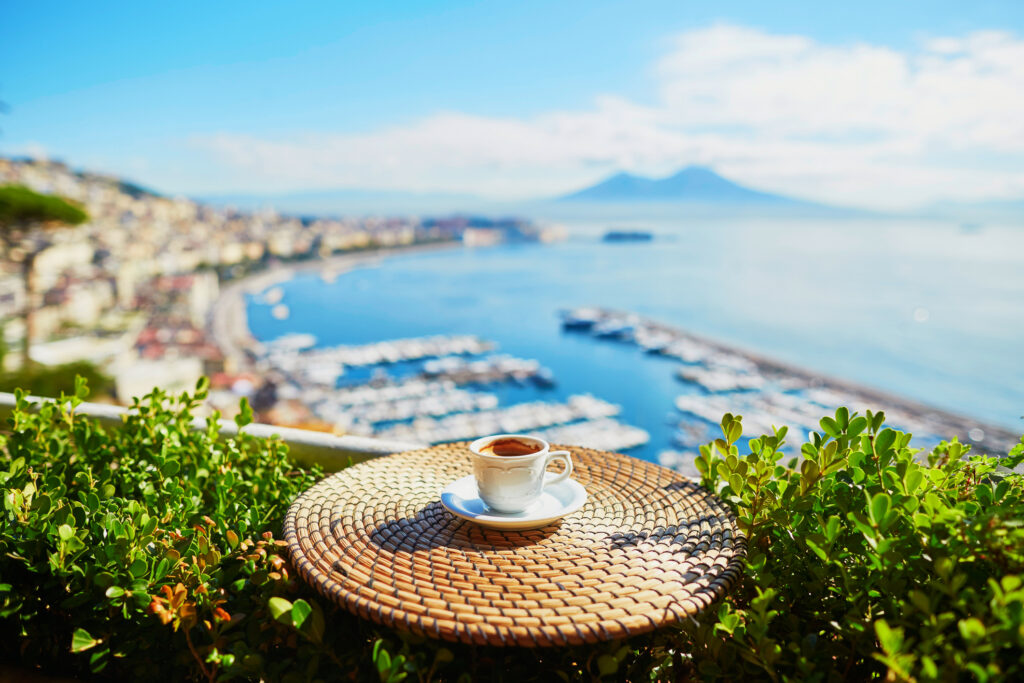
The Art of the Cappuccino
If there’s one coffee drink synonymous with Italy, it’s without a doubt the cappuccino. A perfect balance of espresso, steamed milk, and foam, the cappuccino is typically enjoyed only in the morning, often with a pastry like a cornetto, Italy’s version of a croissant. Ordering a cappuccino after 11 a.m. is considered a cultural faux pas. Italians believe milk-heavy beverages should only accompany breakfast.
The name “cappuccino” is said to come from the resemblance of its creamy, brown color to the robes of the Capuchin monks. Its simplicity disguises the skill required to craft the perfect cup. Baristas in Italy take great pride in achieving the ideal ratio of milk to foam, creating a drink that’s rich yet light.
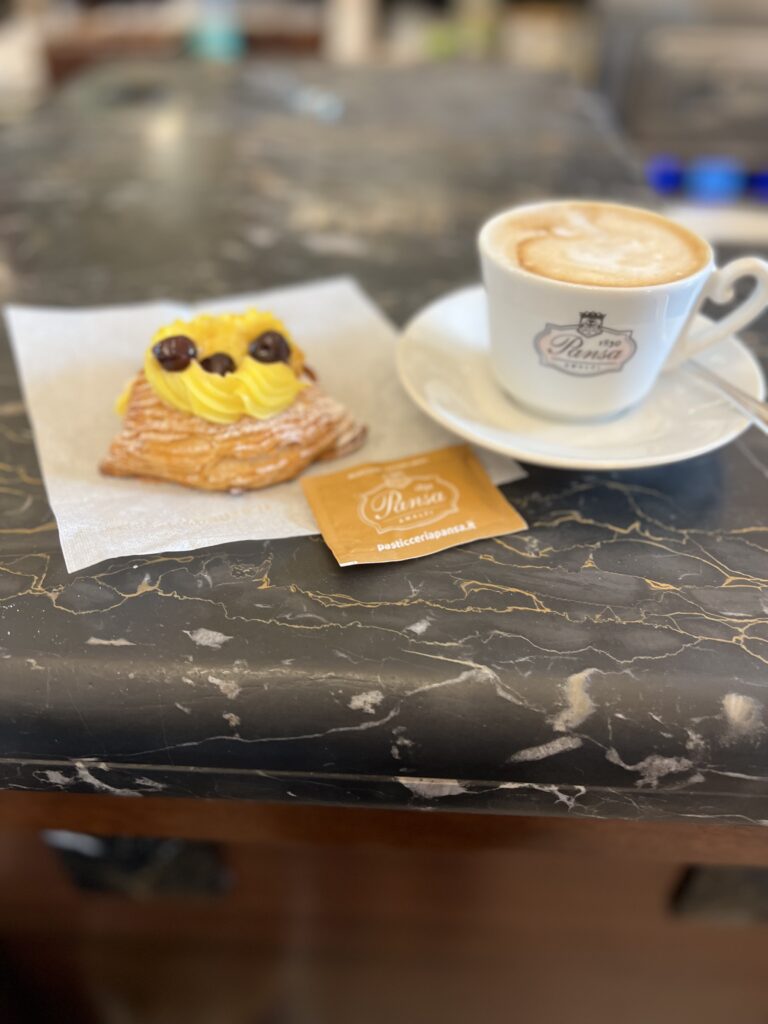
Picture Credit: Lazy Italian Culinary Adventures.
Beyond the Basics: Regional Specialties
While espresso and cappuccino dominate Italian coffee culture, there’s a wealth of regional variations that reflect the country’s diverse culinary heritage.
Here are a few to try:
- Caffè Macchiato: Meaning “stained coffee,” this is an espresso with generally just a splash of milk. It’s perfect for those who want a hint of creaminess without overwhelming the boldness of the espresso.
- Caffè Corretto: For those seeking a little extra kick, the caffè corretto is an espresso “corrected” with a splash of liquor, typically grappa or sambuca. Or my own personal favorite, a splash of anisette liquor.
- Marocchino: Originating from Piedmont, this decadent drink layers espresso with cocoa powder and foamed milk, served in a small glass. It’s a delightful treat for chocolate lovers.
- Shakerato: Perfect for warm weather, the shakerato is a chilled espresso shaken with ice and often sweetened with a touch of sugar syrup. It’s served in a martini glass, combining elegance with refreshment. A must try on your next trip to Italy.
- Espresso Romano: Though not commonly found throughout Italy, but more so in the south, this drink pairs espresso with a twist of lemon, enhancing its brightness and cutting through its bitterness.
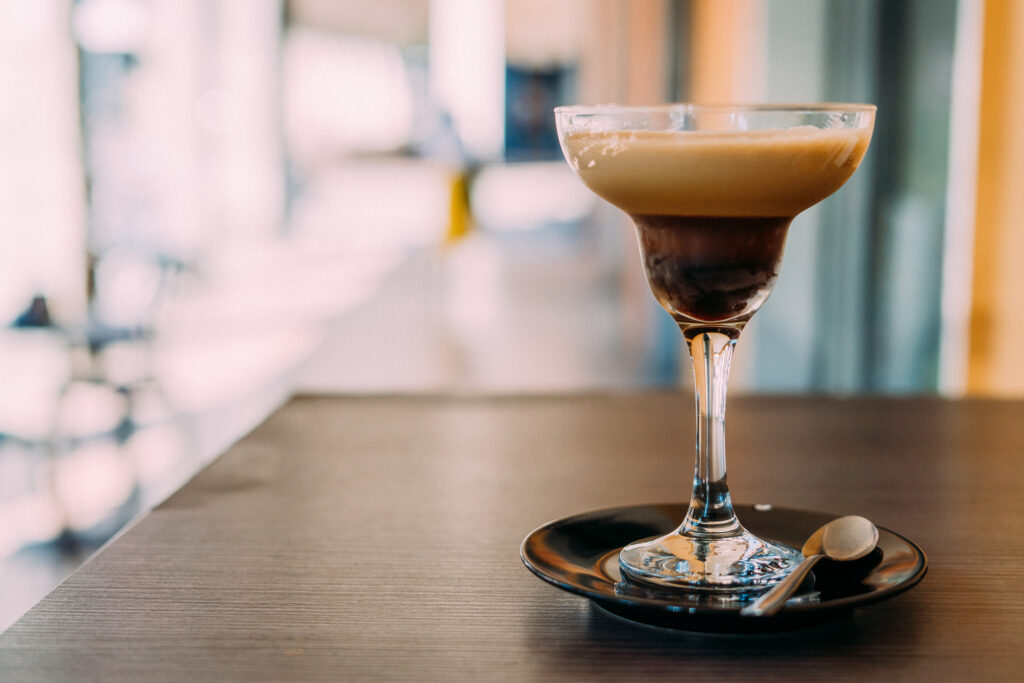
Picture Credit: Jeremy Poland
The Rules of Engagement
Navigating Italian coffee culture requires an understanding of its unwritten rules. Breaking these norms won’t get you banned from a coffee bar, but following them will earn you a nod of approval from the locals.
- Drink at the Bar: While most bars have tables, standing at the counter is the most authentic (and cost-effective) way to enjoy your coffee. Sitting down often incurs an additional service fee.
- Keep It Simple: Italians basically value simplicity in their coffee. Avoid overly complicated orders or requests for customization. You won’t find pumpkin spice lattes here!
- Time It Right: As mentioned earlier, milk-based drinks like cappuccinos are strictly a morning affair. Stick to espresso or macchiato as the day progresses.
- Pay Before or After: In most bars, you’ll either pay at the register first and bring your receipt to the barista or pay after you’ve finished. Observe what the locals are doing and follow suit.
- No To-Go Cups: Italian coffee culture emphasizes savoring the moment. Takeaway cups are rare, as coffee is meant to be enjoyed on the spot.
The Sweet Finale: Affogato
For a truly indulgent experience, look no further than the affogato. This dessert-coffee hybrid features a scoop of creamy gelato, traditionally vanilla, basically “drowned” in a shot of hot espresso. The contrast between the cold, sweet gelato and the warm, bitter coffee creates a harmonious balance that’s quintessentially Italian.
Affogato is a versatile treat, perfect as an afternoon pick-me-up or a dessert to end a meal. While it’s often served in restaurants, you can easily recreate it at home for an impressive yet simple dish. Grab the method here.
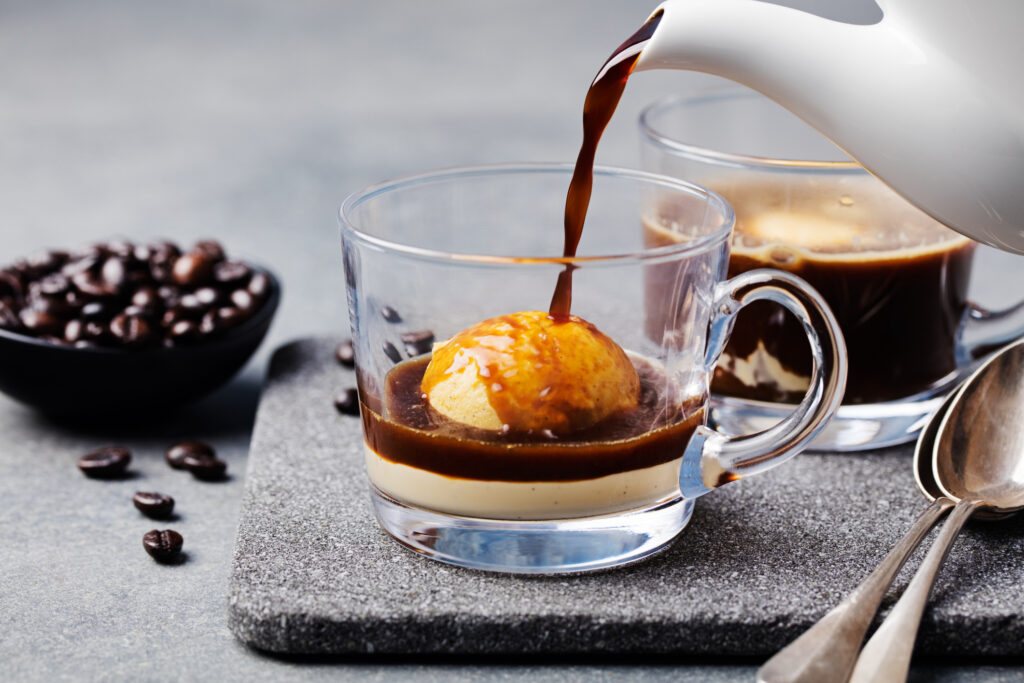
Picture Credit: Anna Pustynnika.
Bringing Italian Coffee Culture Home
If you’re inspired to embrace Italian coffee culture, here are a few tips for recreating the experience at home:
- Invest in Quality: A good espresso machine and grinder are surely essential for achieving the perfect shot. Look for Italian brands like Gaggia, De’Longhi, or La Marzocco for authentic results.
- Use Fresh Beans: Opt for high-quality, freshly roasted coffee beans. Italian coffee tends to favor medium to dark roasts, which highlight caramel and chocolate notes.
- Master the Techniques: Practice pulling espresso shots and frothing milk to achieve barista-level skill. Plenty of online tutorials can help you perfect your technique.
- Create the Atmosphere: Set the scene with a small espresso cup, a saucer, and perhaps a plate of biscotti. Play some Italian music in the background to complete the ambiance.
Conclusion
Italian coffee culture is a beautiful blend of tradition, craftsmanship, and also social connection. It’s about more than just caffeine; it’s a celebration of life’s small pleasures. By understanding the history, etiquette, and variety of drinks, you can immerse yourself in this rich tradition whether you’re in a Tuscan coffee bar or your own kitchen. So next time you sip an espresso or indulge in an affogato, take a moment to appreciate the artistry and culture that went into every cup.
Leave a Reply

What to Pack for Italy
Cosa Mettere in Valigia per l'Italia
Everyone is always asking me what they should pack for Italy,
so I’ve created a quick reference guide that you can use for your next trip.
Hint: You don’t need nearly as much as you think you do!

2 Comments
Good morning. Great post that took me back to Italy in an instant.
Glad you enjoyed it Phil! Hope you and Paula are doing well!